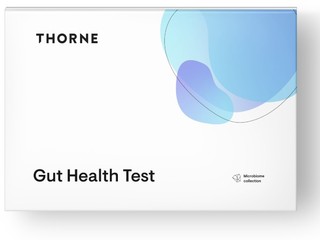Oxford Cancer Analytics raises $11M to detect lung cancer via a blood test
OXcan combines proteomics and artificial intelligence for early detection
Read more... 2021 was a banner year for healthtech startups going public, with at least 15 companies either entering the market either through an IPO or SPAC, compared to seven healthtech IPOs in 2019, and eight in 2020. Since then, though, it's been a total wasteland: in 2022, the number of digital health companies going public via IPO fell to zero, and the same has been true for 2023. In fact, there were only two digital health companies that went public in 2022 and both were SPAC deals: Akili Interactive and Euda Health.
2021 was a banner year for healthtech startups going public, with at least 15 companies either entering the market either through an IPO or SPAC, compared to seven healthtech IPOs in 2019, and eight in 2020. Since then, though, it's been a total wasteland: in 2022, the number of digital health companies going public via IPO fell to zero, and the same has been true for 2023. In fact, there were only two digital health companies that went public in 2022 and both were SPAC deals: Akili Interactive and Euda Health.
Its in that environment that this year has seen a number of publicly traded companies leaving the market this year as well, mostly through acquisitions, including Amazon buying One Medical for $3.9 billion, and CVS buying Oak Street Health for $10.6 billion, while Pear Healthcare filed for chapter 11 bankruptcy.
The latest to once again go private is Thorne Healthcare, which has officially been acquired by L Catterton, a consumer-focused investment firm, it was announced on Monday. The two companies initially revealed the proposed deal in late August at a price of $10.20 per share, or $680 million.
"As consumer investors, we closely follow enduring secular trends, including the consumer's increasing prioritization of health and wellness," Marc Magliacano, co-Managing Partner of the Flagship Fund at L Catterton, said in a statement.
"As we begin this partnership with Thorne, returning this leading clinical brand to the private market, we look forward to focusing our resources and strategic planning on executing on Thorne's vision of delivering clinically backed outcomes utilizing specialized health tests and personalized supplement and wellness programs to patients around the globe."
Thorne's products include health tests, education and nutritional supplement products. Customers can take Thorne's tests at home, which can be dropped of for free, or they can be taken in a third party lab, such as Quest Diagnostics; that includes tests focused on sleep, stress, weight management, gut health, heavy metals, and biological age.
After getting the results, Onegevity, a platform that combines AI with professional human assistance to map, integrate and understand the billions of dynamic biological features that illustrate the state of an individual’s health then turns those insights into a personalized plan for how to eat, exercise, and choose supplements based on that person's unique needs. Thorne merged with Onegevity in February of 2021.
Thorne makes money through three types of sales of its product: DTC subscription, DTC transaction, and professional/B2B.
The largest of these is professional/B2B sales, through which the company sells to wholesale customers that include health professionals, retail stores and through various online sites operated by authorized resellers, such as Emerson Ecologics, iHerb, and Biote Medical.
The second largest segment is DTC transaction sales, in which the company sells its tests and supplements direct to consumers online through its own website. Revenue from online sales is recognized at time of shipment of the product, while testing services and testing kits are recorded as revenue when the testing results are provided to the customer. In 2020, company made $38.2 million, or 27.6% of its total revenue, from this segment.
Finally there are DTC subscription sales, in which the Company offers its customers the ability to opt into recurring automatic refills on both Thorne.com and Amazon.com. Revenue is recognized when the product is shipped to the consumer, and the company doesn't collect any funds when a consumer signs up to receive a shipment which can be sent either monthly, every 45 days, every two months, every three months, or every four months.
In 2021, Thorne made a total of $185 million in revenue, 40% of which came from DTC and 60% of which came from B2B.
In its most recent quarterly earnings, Thorne's net sales grew 33.1% year-over-year to $72.7 million, with direct-to-consumer ("DTC") sales growth of 39.3%. Meanwhile, gross profit grew 35.7% year-over-year to $40.6 million; gross profit as a % of net sales increased year-over-year to 55.9%.
Thorne HealthTech's shares began trading on the Nasdaq on September 23, 2021, under the ticker symbol "THRN." It priced its shares at $10, and raised approximately $70 million.
“This transaction is an excellent outcome for all of our stakeholders and marks the beginning of an exciting new chapter for Thorne,” Paul Jacobson, Chairman and Chief Executive Officer of Thorne, said when the acquisition was first announced.
“For over a decade, we have worked tirelessly to deliver on our mission to bring science-based solutions to the prevention space and empower consumers to live healthier lives longer. L Catterton has an impressive track record of fostering the growth and success of leading global consumer brands. Together with their deep expertise in the health and wellness industry, global reach, and extensive operational capabilities, I am confident L Catterton is the right partner to fuel Thorne’s long-term growth.”
OXcan combines proteomics and artificial intelligence for early detection
Read more...Nearly $265B in claims are denied every year because of the way they're coded
Read more...Most expect to see revenue rise, while also embracing technologies like generative AI
Read more...


